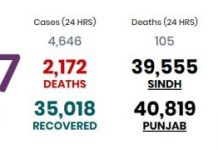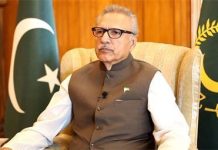مضمون کا ماخذ : quina acumulada
متعلقہ مضامین
-
Over 4,000 undocumented Afghans repatriated via Torkham border
-
Captain's Bounty سرکاری تفریحی لنک
-
Former CJ asks PM to step down
-
PIA on way to recovery as passenger traffic increase
-
Seven including five schoolchildren killed as train collides with motorcycle-rickshaw
-
ورچوئل ریئلٹی لاٹری انٹرٹینمنٹ آفیشل ایپ
-
Starburst Entertainment آفیشل ویب سائٹ تفصیلات
-
لکی پگ آفیشل ڈاؤن لوڈ کا طریقہ اور اہم معلومات
-
الیکٹرانک سٹی آفیشل گیم پلیٹ فارم: ایک جدید ڈیجیٹل تجربہ
-
لائٹننگ رولیٹی مائشٹھیت بیٹنگ ایپ کی خصوصیات اور فوائد
-
لائٹننگ رولیٹی مائشٹھیت بیٹنگ ایپ کی خصوصیات اور فوائد
-
لاٹری سٹی آفیشل ڈاؤنلوڈ ویب سائٹ کے بارے میں مکمل معلومات










.jpg)

